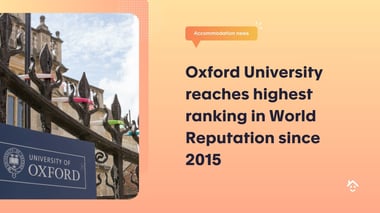Generation Rent is urging the government to change the law to give tenants more security and incentives to go green - and that means preventing an eviction for up to six years after energy improvements.
The tenant's organisation says that if a government grant to a tenant is used to improve the energy performance certificate (EPC), then the renter should benefit from a warmer home and lower energy bills.
It says that doing so will make tenants more enthusiastic about applying for a green grant without fearing that their landlord will evict them once the work is complete.
The group is calling for an amendment to the Renters (Reform) Bill so that a tenant receiving an energy efficiency grant, will be safe from:
- An eviction on 'landlord need' grounds, including a sale, for at least six years.
- Any rent increase that reflects the improvements made by the grant to the property when assessed by the First Tier Tribunal.
Generation Rent says that the six-year rule reflects the time it takes for an average energy grant to translate into energy bill savings.
'Energy efficiency grants'
A spokesperson for Generation Rent says: "Five times as many owner-occupiers have received energy efficiency grants than private renters, despite households in fuel poverty being almost as likely to be in a private rented home than one they own.
"Since 2010, fuel poverty has fallen by 35% among owner-occupiers and by 54% among council tenants, but by just 4% for private renters.
"We are calling on the government to give private renters better protection from eviction and rent rises to ensure that they enjoy the benefits of energy efficiency funding and so have a stronger incentive to apply for grants."
The group's research reveals that one in four private renters (24%) lives in fuel poverty - that's a higher rate than any other tenure.
And there are 1.19m private renter households that are classed as being fuel poor, compared with 1.33m owner-occupied households - or just 8.8% of that tenure.
It says that energy efficiency measures to bring a home up to an EPC Band C will lift a household out of fuel poverty.
Minimum Energy Efficiency Standards (MEES) for private rented homes
However, while the government consulted on a proposal to raise Minimum Energy Efficiency Standards (MEES) for private rented homes from Band E to Band C, there is still no official deadline for the private rented sector to meet.
Recently, the Housing Secretary Michael Gove said he was looking at relaxing the timescales that landlords had to meet – the original idea was for new tenancies to meet the deadline by 2025 and all tenancies in 2028.
But both of those deadlines look like being tough to meet.
And Generation Rent says that a deadline under MEES shouldn't be necessary.
Main funding to retrofit homes is the Energy Company Obligation
The group's spokesperson said: "The main source of funding to retrofit homes is the Energy Company Obligation (ECO) where households on low incomes, usually in receipt of benefits, can access grants to install insulation and other measures.
"But since the scheme's introduction, owner-occupiers have enjoyed the lion's share of the grants, 1.65m, or 69.9%, despite accounting for just 40.9% of fuel-poor households, while private renters, with 36.6% of fuel-poor households, received just 330,000 ECO grants, or 14.0% of the total."
The spokesperson added: "A major obstacle to take-up of grants in the private rented sector is poor security of tenure, which allows landlords whose properties are upgraded to raise the rent, cancelling out any energy bill savings, or evict the tenant in order to sell the improved property.
"While the Renters (Reform) Bill aims to improve protection for tenants from arbitrary evictions, it will still allow these practices so tenants will still have little incentive to apply for a grant."
Landlords should be required to improve the energy efficiency.
Generation Rent also says that landlords should be required to improve the energy efficiency rating of their properties to C - and they should accept grant-funded works to their property.
The spokesperson said: "These measures will allow tenants to enjoy the energy bill savings of the improved property, giving them a stronger incentive to apply for a grant in the first place.
"The money that is supposed to tackle fuel poverty is bypassing the people who need it the most.
"Although there is squeamishness about handing money to landlords who stand to make a profit, the longer the grants system fails to work as it should, the longer tenants suffer and the further we are from meeting climate targets."
They added: "With measures to make sure the financial benefit of grants goes to the tenant, by preventing evictions and rent increases arising from the home's improvement, we can slash carbon emissions and jump-start improvements to renters' living standards."
'Landlords worried about this idea becoming law’.
Simon Thompson, the managing director of Accommodation for Students, said: "There will be many landlords worried about this idea becoming law.
"Having a no eviction ban, for whatever reason, is simply not possible for most landlords.
"It doesn't take into account a tenant's anti-social behaviour or non-payment of rent - what happens in those circumstances? Is the tenant still protected from eviction?"
He added: "And I would wonder what would happen should student tenants apply for a grant; would they get the same protection?
"The idea will undoubtedly appeal to many, but it takes away the right of a landlord, the property owner, to decide who can or cannot live in their property. And that's not right."




